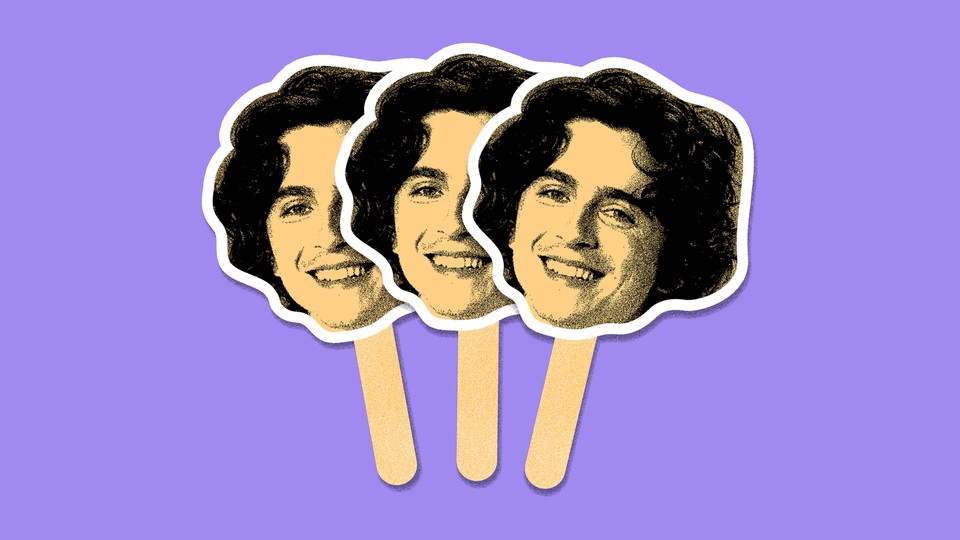The Celebrity Look-Alike Contest Boom
4 min read
The fad began with a Timothée Chalamet look-alike contest in New York City on a beautiful day last month. Thousands of people came and caused a ruckus. At least one of the Timothées was among the four people arrested by New York City police. Eventually, the real Timothée Chalamet showed up to take pictures with fans. The event, which was organized by a popular YouTuber who had recently received some attention for eating a tub of cheeseballs in a public park, captured lightning in a bottle. It didn’t even matter that the winner didn’t look much like the actor, or that the prize was only $50.
In the weeks since, similar look-alike contests have sprung up all over the country, organized by different people for their own strange reasons. There was a Zayn Malik look-alike contest in Brooklyn, a Dev Patel look-alike contest in San Francisco, and a particularly rowdy Jeremy Allen White look-alike contest in Chicago. Harry Styles look-alikes gathered in London, Paul Mescal look-alikes in Dublin. Zendaya look-alikes competed in Oakland, and a “Zendaya’s two co-stars from Challengers” lookalike contest will be held in Los Angeles on Sunday. As I write this, I have been alerted to plans for a Jack Schlossberg look-alike contest to be held in Washington, D.C., the same day. (Schlossberg is John F. Kennedy’s only grandson; he both works at Vogue and was also profiled by Vogue this year.)
These contests evidently provide some thrill that people are finding irresistible at this specific moment in time. What is it? The chance to win some viral fame or even just positive online attention is surely part of it, but those returns are diminishing. The more contests there are, the less novel each one is, and the less likely it is to be worth the hassle. That Chalamet showed up to his look-alike contest was magic—he’s also the only celebrity to attend one of these contests so far. Yet the contests continue.
Celebrities have a mystical quality that’s undeniable, and it is okay to want to be in touch with the sublime. Still, some observers sense something a bit sinister behind the playfulness of contest after contest, advertised with poster after poster on telephone pole after telephone pole. The playwright Jeremy O. Harris wrote on X that the contests are “Great Depression era coded,” seeming to note desperation and a certain manic optimism in these events. The comparison is not quite right—although the people at these contests may not all have jobs, they don’t seem to be starving (one of the contests promised only two packs of cigarettes and a MetroCard as a prize)—but I understand what he’s getting at. Clearly, the look-alike competitions do not exist in a vacuum.
The startling multiplication of the contests reminds me of the summer of 2020, when otherwise rational-seeming people suggested that the FBI was planting caches of fireworks in various American cities as part of a convoluted psyop. There were just too many fireworks going off for anything else to make sense! So people said. With hindsight, it’s easy to recognize that theory as an expression of extreme anxiety brought on by the early months of the coronavirus pandemic. At the time, some were also feeling heightened distrust of law enforcement, which had in some places reacted to Black Lives Matter protests with violence.
Today’s internet-y stunts are just silly events, but people are looking for greater meaning in them. Over the past few weeks, although some have grown a bit weary of the contests, a consensus has also formed that they are net good because they are bringing people out of their house and into “third spaces” (public parks) and fraternity (“THE PEOPLE LONG FOR COMMUNITY”). This too carries a whiff of desperation, as though people are intentionally putting on a brave face and shoving forward symbols of our collective creativity and togetherness.
I think the reason is obvious. The look-alike contests, notably, started at the end of October. The first one took place on the same day as a Donald Trump campaign event at Madison Square Garden, which featured many gleefully racist speeches and was reasonably compared by many to a Nazi rally. The photos from the contests maybe serve as small reassurance that cities, many of which shifted dramatically rightward in the recent presidential election, are still the places that we want to believe they are—the closest approximation of America’s utopian experiment, where people of all different origins and experiences live together in relative peace and harmony and, importantly, good fun. At least most of the time.



